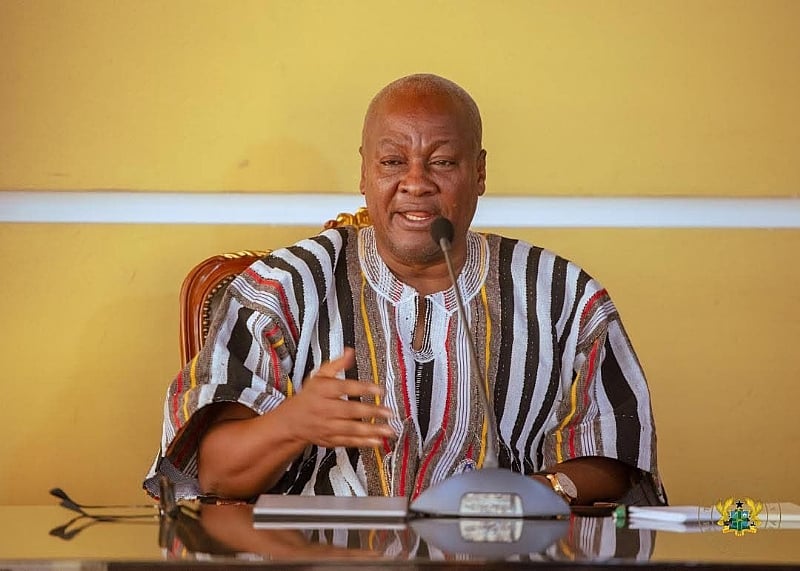Former President John Dramani Mahama of Ghana has brought to light the stagnant state of the ambitious Agenda 111 hospital project initiated by the preceding New Patriotic Party (NPP) administration. This initiative, launched in August 2021 by then-President Akufo-Addo, aimed to revolutionize Ghana’s healthcare landscape by constructing 111 new hospitals across the country, comprising 101 district hospitals, six regional hospitals in newly created regions, one regional hospital in the Western Region, two psychiatric hospitals in Kumasi and Tamale, and a redevelopment of the Accra Psychiatric Hospital. However, according to Mr. Mahama, the vast majority of these hospitals remain unfinished, with approximately 90 requiring an estimated $1.7 billion to reach completion. This revelation raises serious concerns about the effective utilization of resources and the potential for stalled progress in delivering essential healthcare services to the Ghanaian people.
Mr. Mahama’s assessment paints a stark picture of the project’s current reality, contrasting sharply with the previous administration’s pronouncements. He contends that despite claims of commissioning, many of these hospitals are effectively non-functional, lacking even basic equipment like beds. He cited one particular example of a supposedly commissioned hospital that exists only as an empty shell, devoid of the necessary infrastructure and equipment to provide any form of healthcare. This raises questions about the veracity of earlier reports and the actual progress made on the ground. The significant financial gap required to complete the remaining hospitals underscores the magnitude of the challenge faced by the current administration in fulfilling the original vision of Agenda 111.
The Mahama administration is actively exploring solutions to address this inherited challenge. Internal discussions within the cabinet are underway, with the Minister of Health expected to present a comprehensive plan outlining the way forward. One of the potential strategies under consideration involves collaborating with religious missions, leveraging their existing infrastructure and expertise in healthcare provision. This approach could entail engaging missions to complete the construction of unfinished hospitals, manage their operations, and deliver essential healthcare services to the communities they serve. Such a partnership could potentially expedite the completion of these critical facilities and ensure their efficient and effective utilization.
The stalled progress of Agenda 111 has far-reaching implications for Ghana’s healthcare system. The initiative, envisioned as a catalyst for improved healthcare access across the nation, aimed to ensure Ghanaians, regardless of their geographical location, had access to quality medical services. The unfinished hospitals represent a missed opportunity to enhance healthcare delivery, particularly in underserved districts. The delay in completion not only denies communities access to much-needed facilities but also raises concerns about the efficient allocation and utilization of public funds.
The original scope of Agenda 111 was comprehensive, encompassing a wide range of medical specialties and services. Each facility was planned to include surgical theatres for maternity, obstetrics, and gynaecology, along with separate female, male, and paediatric wards. This comprehensive approach aimed to address diverse healthcare needs within local communities, reducing the reliance on larger, often overcrowded, regional hospitals. The uncompleted hospitals represent a gap in this planned network, hindering the realization of a more distributed and accessible healthcare system.
The Mahama administration’s commitment to addressing the unfinished Agenda 111 hospitals is crucial for the future of Ghana’s healthcare infrastructure. The scale of the challenge, requiring significant financial resources and strategic planning, necessitates a comprehensive and collaborative approach. Exploring partnerships with religious missions and other stakeholders could be a viable pathway to completing these vital facilities and ensuring they serve their intended purpose of providing quality healthcare to all Ghanaians. The successful completion of Agenda 111 will not only improve healthcare access but also contribute to fulfilling the government’s commitment to enhancing the well-being of its citizens.


